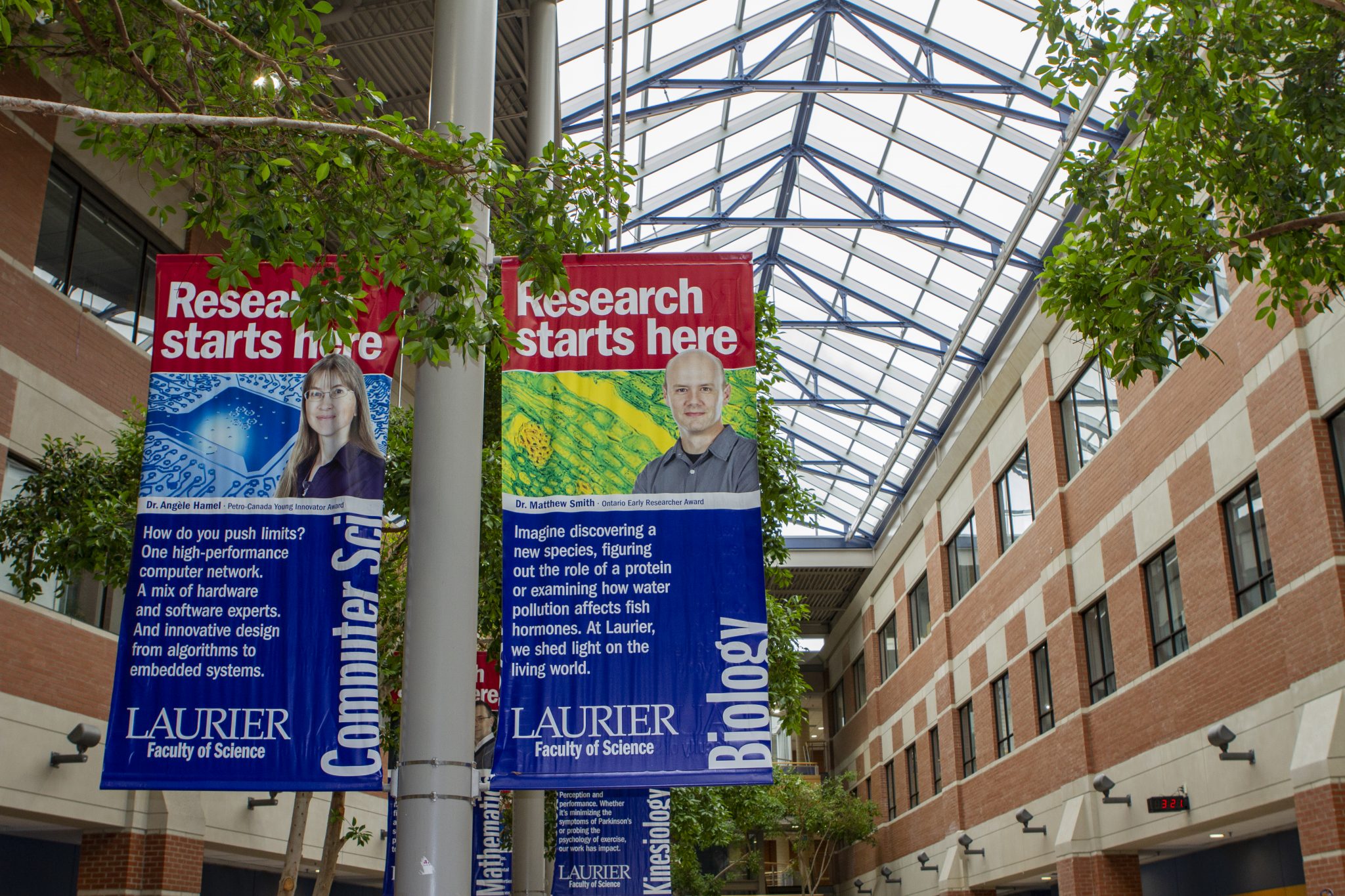Laurier’s first bio and chem PhD student is creating better liquid crystals


The future is and always will be unknown. We can guess and worry and plan, but never fully anticipate.
For Katie Psutka, four years ago the future may have looked especially daunting, given that she was asked to blaze a trail as one of the first students accepted into Wilfrid Laurier University’s new Chemistry and Biology PhD program.
That uncertainty came to a close when Psutka successfully defended her thesis, but the lessons she accumulated during her student-career at Laurier will be with her wherever she goes.
When asked her biggest piece of advice to incoming students, Psutka drew from her own experience, on what set her on her course toward this PhD back in her very first year of undergrad.
“It’s important for incoming students to make themselves stand out if they find something that they’re passionate about. I wouldn’t have gotten in with my professor if I had not gone up and introduced myself,” Psutka said.
“Don’t be afraid to talk to your professors if you’re interested in their work and really make yourself stand out from everyone else who’s coming through the door.”
The courage that led to a first-year student approaching a professor about their work no doubt served Psutka well during her time at Laurier, but so did an equal measure of passion for her research. When asked what her dream project would be to work on, without hesitation she replied as such:
“To be honest I’m really enjoying [the research] I’m doing right now. I’m enjoying trying to make new materials, and trying to figure out why they’re behaving the way that they do,” Psutka said.
The courage is there and so is the passion, but neither of these are inexhaustible resources. A student needs a final ingredient if they are to be successful — one that Psutka demonstrated admirably during her time here.
When asked about the most challenging aspect of her program, her answer could probably be echoed by every student at Laurier.
Not everyone will get a PhD. Not everyone will enrol in chemistry or biology. Not everyone will fully understand liquid crystalline materials (Psutka is our best hope in that area). However, another guarantee is that no one knows what their future holds.
“One of the things that surprised me the most about doing a PhD is it really is a marathon and not a sprint,” Psutka said.
“The research doesn’t always work out the way that you want it to, or hope that it does and you just have to keep going and keep pushing and to continue to work and develop new things, because it doesn’t always work the first time.”
Over the last decade, these qualities saw Psutka earn her undergraduate and master’s degrees on her way to the aforementioned PhD in chemistry and biology.
When asked to describe her PhD work, Psutka summed it up as follows:
“My work focused on liquid crystalline materials, which are materials that have a state of matter between a solid and a liquid. These can potentially be used in things like solar cells, or renewable organic electronics,” Psutka said.
“So, my job was to build new compounds of these and then either explain why or why not it behaves the way that it did.”
Not everyone will get a PhD. Not everyone will enrol in chemistry or biology. Not everyone will fully understand liquid crystalline materials (Psutka is our best hope in that area). However, another guarantee is that no one knows what their future holds.
As we embark on this new year, let us briefly reflect on the wisdom our very first chemistry-biology PhD can impart.
Psutka stands as an example that, as uncertain as the future remains, utilizing these characteristics is as close as we can get to a guarantee of success.


